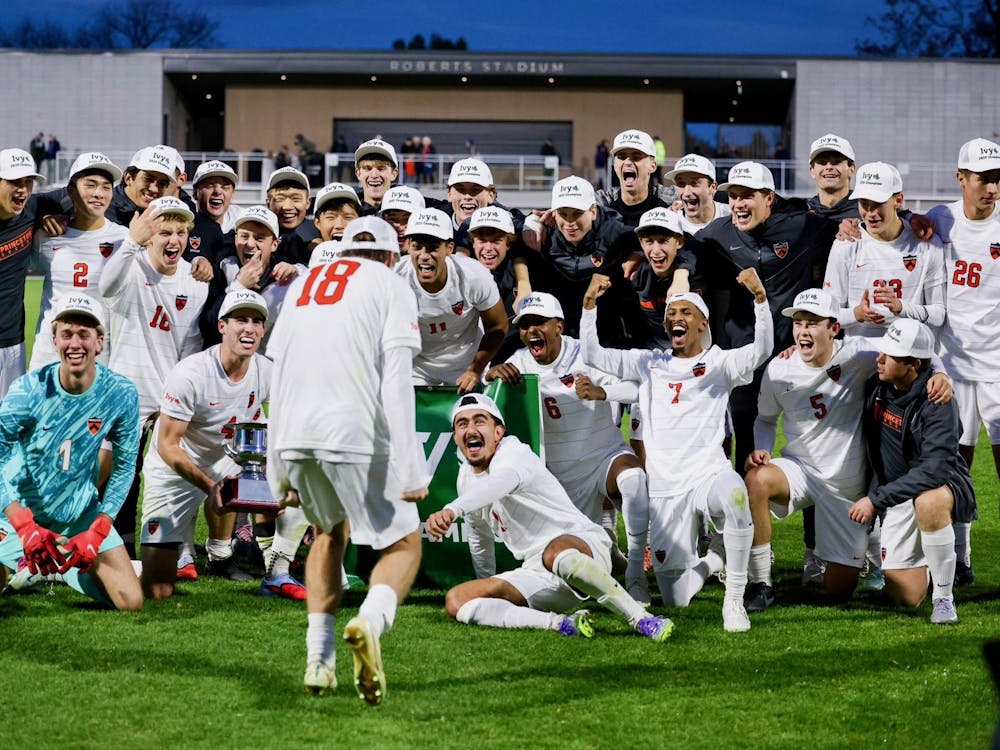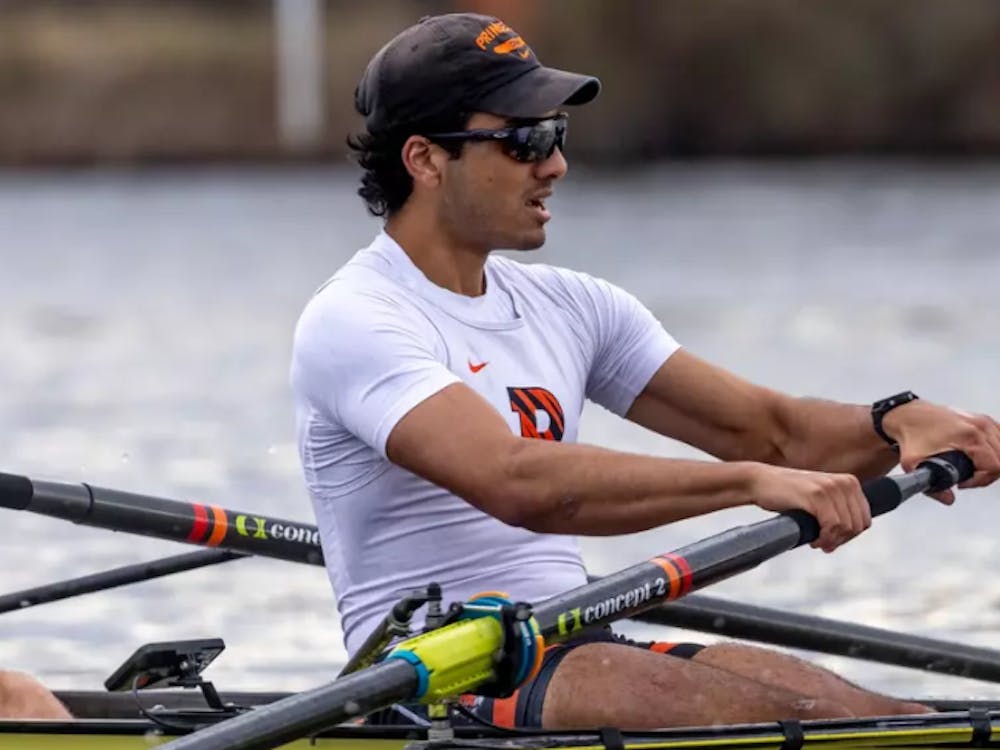In addition to attending practices for two to three hours daily and traveling for road games and tournaments throughout the year, athletes are also often required to remain on campus or with the team during breaks while most students enjoy time off from school. This time away from family can take a heavy toll, especially for those whose homes are on a different coast or continent. The most recent hit on these athletes and their families occurred just last week. Thanksgiving dinner, football on TV and Black Friday shopping — the traditional family affair to kick off the holiday season — was experienced only partially or not at all by many of Princeton’s athletes. The men’s and women’s basketball and hockey teams stayed on campus to practice and train for their upcoming contests and left empty their spots around the Thanksgiving dinner tables at their respective homes.
Despite the heavy time commitment, the coaches and athletes find ways to make up for the extra time away from family and shortened breaks. Some members of the women’s basketball team enjoyed Thanksgiving dinner at the home of freshman guard Laura Johnson. Turkey, however, just isn’t the same without the accompanying graces of family.
The time commitment during breaks varies from sport to sport and season to season. Football, cross country, field hockey, soccer and men’s water polo athletes had shortened fall breaks or no break at all as they reached the height of their competitive seasons. Most cross country runners also compete in indoor and outdoor track, leaving them with full schedules for all of the breaks during the school year. These three-sport athletes do not get Fall Break, come back early from winter break and miss Intersession and spring break as well.
Other sports aren’t so demanding during the holiday season. Crew has a year-long schedule, with major meets during October and throughout the spring. Rowers remain on campus to train during spring break and travel to Tampa for training over Intersession.
Tiger swimmers enjoy a somewhat tighter schedule.
“We have a training trip during fall break in Florida that everybody is expected to join no matter if they live in New York City or in another country. For some, it’s probably pretty tiring, but for some, it could be refreshing,” sophomore swimmer Arda Bozyigit said. “During Thanksgiving, we don’t have a mandatory stay-in, and most of the team is with their families and trying to swim on their own time.”
A sport usually dependent on individual performance, swimming and diving is often overlooked when the topic of team unity and cohesion arises. The Princeton swimming and diving team, however, is another matter. From team retreats before the school year to set goals for the season to dinner at head coach Rob Orr’s house and his special popcorn, the team uses its breaks to become as tightly knit a unit as any other organization on campus.
“The team comes back before winter break is over for some training, and we stay over Intersession for a couple of meets, including our hyped-up Harvard-Yale-Princeton meet,” Bozyigit said. “By spring break, the season is just about winding down, so we don’t have a training trip.”
No matter whether they’re home enjoying turkey and mom’s homemade cranberry sauce or in Princeton running drills and doing workouts, athletes understand their obligation to train and stay in shape throughout the year. Break or no break, collegiate athletics demands a year-round commitment.
“We’re not required to stay and train over fall and winter break, but you’re absolutely expected to stay in shape and work out on your own,” junior heavyweight rower Jake Dale said.
The tennis team, which also plays the majority of its league rivals in the spring season, enjoys a similar break schedule. Fall Break and Thanksgiving don’t tend to coincide with tournaments, leaving the players free to go home and be with their families.
“The only real break we don’t get to go home for is spring break,” sophomore Ryan Kim said. “Last year we went to California for spring break to play a bunch of teams, and it was pretty cool. It’s a place I hadn’t even been to before, plus I also like hanging out with the team. You have a whole week just with them, so you get to know everybody pretty well.”

Regardless, remaining on campus during breaks does have its upsides. Time spent exclusively with teammates and coaches provides athletes with an ideal atmosphere to train without the hustle and bustle of academic and extracurriculars. Breaks also allow teammates to bond and form the connections that could mean the difference between a win and a loss come crunch time.
“Being with the team over those breaks gives us all an opportunity to get more intense training done without the distraction of school and other activities on the side,” Dale said. “Plus, it’s just a good time to hang out with your teammates.”
“It kind of sucks not being able to go home with family to visit and all, but you really don’t notice it because you’re always so busy,” Kim said. “And I like playing tennis, so I don’t mind hanging around and playing a few extra matches. Plus, I know that summer’s coming up, and I’ll get to go home then.”
The road to victory is long and winding for these athletes, but the journey with their fellow teammates and coaches is something to be treasured for a lifetime.







